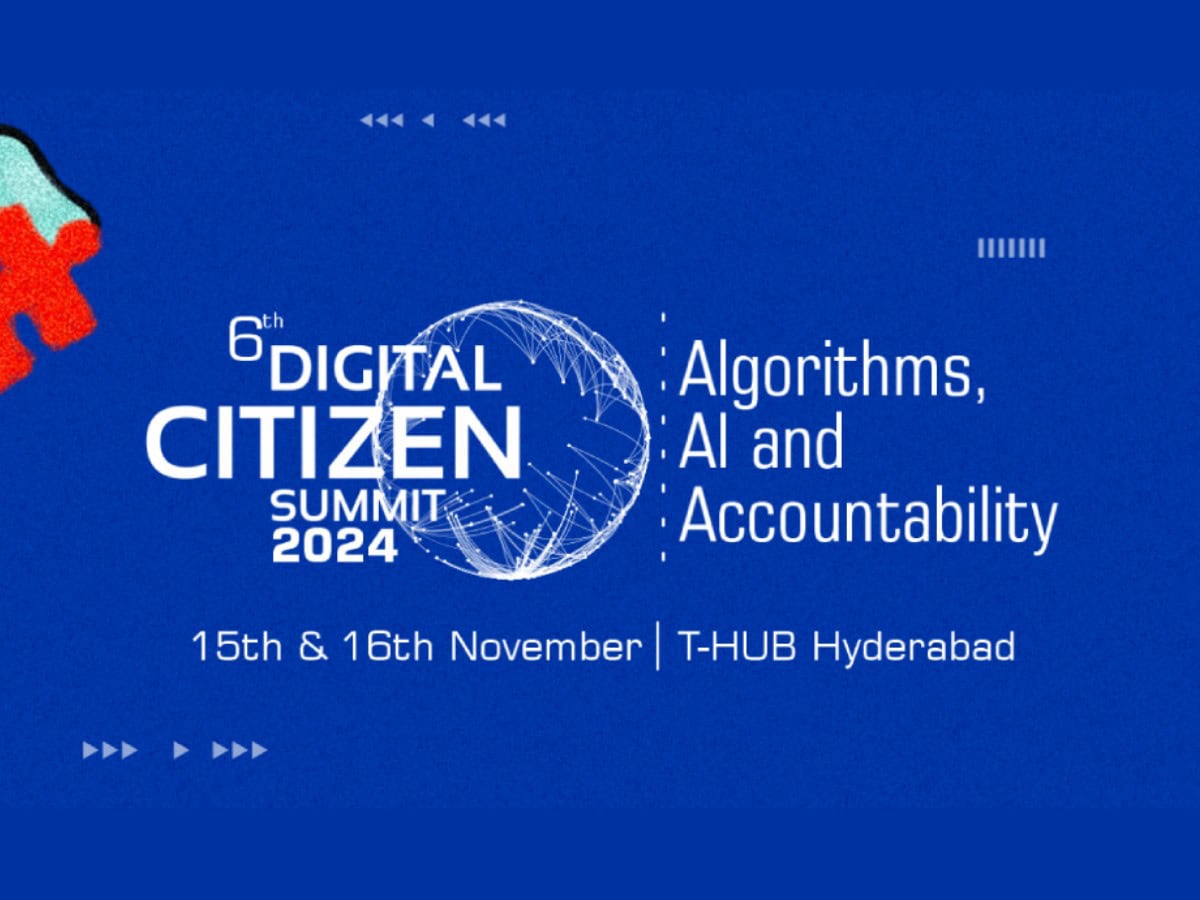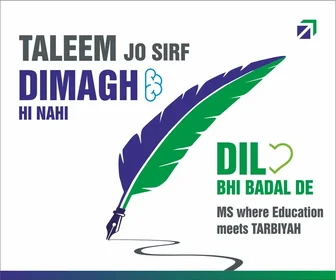
By Ablaz Mohammed Schemnad and Rashad Ullah Khan
The sixth edition of Digital Citizen Summit (DCS) is happening on November 15th and 16th at T-HUB, Hyderabad. The flagship event is co-organised by Digital Empowerment Foundation (DEF), Centre for Development Policy and Practice (CDPP), and the Government of Telangana.
The annual event aims to bring together a diverse and dynamic gathering of scholars, academics, practitioners, civil society organisations, and government representatives working in the areas of technology, digital citizenship, and social innovation. The theme for DCS 2024 is “Algorithms, AI and Accountability.” Participants will have the opportunity to learn from renowned experts, attend inspiring keynote sessions and lightning talks, engage in thought-provoking panel discussions, attend paper presentations, take part in technical sessions, and connect with others through valuable networking opportunities.
Artificial Intelligence (AI) is frequently presented as a solution to a range of social, economic, environmental, and political challenges. In India, AI has gained substantial momentum, with the government actively encouraging its development and integration across sectors like healthcare, education, urban planning, governance, agriculture, and transportation to drive economic growth. However, this also brings forth a series of challenges, as different power structures intersect with the development, planning, and execution of AI initiatives. While AI, like any technology, holds the potential to democratise knowledge and reduce human labour, the process must be more inclusive and participatory.
Communities are often treated as passive recipients, while the design and deployment of AI and machine learning tools are controlled by producers. Similarly, these communities have little say in the policies that govern their data, nor in determining what data gets collected and how it is used. This lack of agency makes it difficult to hold AI systems accountable when they exhibit bias or discrimination, and the blame for errors is often shifted elsewhere.
To reflect on important issues and ensure meaningful dialogue regarding the vulnerabilities mentioned, the summit will cover a range of themes. These include AI regulation and citizen-centric governance, the intersection of AI and the environment, the impact of AI on workers and platform economies, the role of AI in health and data, and how digital exclusion affects people’s fundamental rights, among others. These topics will be explored through various technical sessions, such as “AI, Gig Workers, and the Dignity of Labour,” hosted by SFLC.in; “GenAI and Disinformation: Regulate Platforms, Not People,” hosted by Access Now; and “AI and Public Policy,” presented by CDPP. Additionally, lightning talks will address specific issues, such as “Combating TFGBV: Enhancing Online Safety & Security for All,” hosted by USAID, which will tackle various online safety and security concerns. Another talk, “India’s Digital Capitalism,” hosted by TISS Mumbai, will examine the political economy of digital governance.
The summit will also have paper presentations from scholars in the domain under the themes of “AI Regulations, Citizen-Centric Governance, and Economy” and “Ethical AI Development, Data Rights and Algorithmic Bias.” The presenters will cover topics ranging from AI and urban governance, a study of platform workers in Mumbai, AI assistants and its impact on agency and care work, biometric surveillance and human rights, privacy violation and chilling effect in the digital age, gender dynamics and misuse of personal data, comparison of ethical AI strategies in India with UNESCO standards, and AI regulations in India. A selection of papers will be featured in the CDPP’s Journal of Development Policy and Practice, highlighting the summit’s dedication to furthering knowledge in the field. Both the academic panels will be followed with engaging discussions and will contribute to the ongoing discussions on regulating AI for ensuring inclusivity.
Apart from the organisers, DCS 2024 is supported by APNIC Foundation, Association for Progressive Communications, Global Digital Inclusion Partnership as principal partners, Internet Society and Broadband India Forum as associate partners, IIIT Hyderabad, University of Hyderabad, and Maulana Azad National Urdu University as education partners, and various other institutions and organisations as our session and outreach partners.
Registration Link: https://docs.google.com/forms/d/e/1FAIpQLScbARyfxcnPyEGGopa5kgLdmzYlUctZPJpOITd4VHIcJZ3ncg/viewform
For more info: https://dsummit.defindia.org/
Ablaz Mohammed Schemnad is a Research Associate and Rashad Ullah Khan a Senior Research Fellow at the Centre for Development Policy and Practice (CDPP, a public policy research institute based in Hyderabad.

